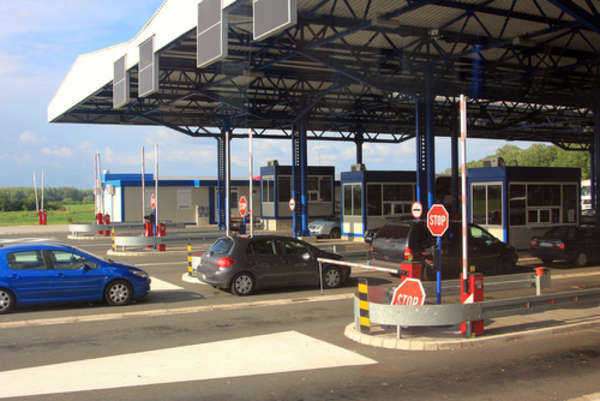The Implications of Border Crossing
The Implications of Border Crossing: Exploring the Economic and Social Consequences
Border crossing is an essential process for people and goods moving between different countries. The migration of individuals can spur economic growth, social integration, and technological innovation across several countries. The implications of border crossing are vast; this article explores the economic and social consequences of crossing a national boundary.
Economic Implications
1. Trade and Commerce: The primary economic outcome of a national border crossing is trade. Trade between countries is critical to boosting the economy and offering goods and services that may not be available locally. The integration of trade across borders has led to the production of diverse goods, increases in job opportunities, and heightened competition, which results in better quality products.
2. Controlling the Flow of Goods: The movement of goods between countries brings with it the responsibility of ensuring that contraband does not cross borders. Governments implement various measures to ensure that the flow of goods is documented, and any prohibited material does not cross borders.

3. Labor Mobility: The reduction of border restrictions can lead to an increase in workforce movement. Cross-border labor mobility is essential in facilitating international investment, knowledge-sharing, and knowledge transfer. It also contributes to the growth of the economy by taking advantage of a diverse range of skills.
Social Implications
1. Cultural Integration: Migration and border crossing facilitate cultural integration, leading to the promotion of diversity and acceptance of cultural norms. It offers an opportunity for individuals to meet people from different backgrounds and religions, fostering harmony and tolerance.
2. Security: National borders represent an essential element in securing national sovereignty and protection. Securing borders from potential threats is critical in ensuring national safety.
3. Language: Language can act as a barrier to migration and interaction between people from different countries. Overcoming language barriers has far-reaching implications for economic and social integration.
📝 See Also
Issues with Border Crossing
1. Cultural and Political Resistance: Cultural and political factors play a crucial role in fostering borders' resistance. Border policies and politics in one country may not be acceptable in another country, leading to conflicts and resistance to cross-border migration.
2. Illegal Migration: Despite the benefits of cross-border migration, there are inherent risks associated with illegal crossing of borders. Illegal migration can lead to problems such as smuggling, human trafficking, and other social, economic, and health risks.
3. National Security: National security is a top priority in safeguarding state borders. Cross-border terrorism, trafficking, and other criminal activities may threaten the national security of a country.
Conclusion
Crossing borders is an essential process that has significant implications for countries' social and economic development. The free flow of goods and labor mobility promotes diversity, cultural integration, and tolerance while spurring economic growth. While there are challenges associated with border crossing, they can be overcome through collaboration and cooperation between governments. Cross-border migration of people and goods has vast potential to improve lives, create livelihoods, and build bridges between people from diverse backgrounds.
There exist three common methods that illegal aliens employ during their immigration across an international border. However, some of these implications can be rendered as foolhardy and suicidal. Each year there are several hundred migrant deaths along the border of Mexico and the United States, and it is an ever growing concern as the death toll has risen since the mid-1990's. During the years between 1998 and 2004, an estimated 1,954 people had perished during their immigration to the border of Mexico and the United States without official permission from the Federal government of the United States.
There have been different methods taken by illegal aliens in their immigration to a new host country. However, there have been various accidents and tragic stories of people dying in their immigration.
Car accidents have been reported to be a cause for the deaths of illegal aliens. Whether it be an overcrowded van of nine Mexicans that lost control of the wheel at high speed or be it the crashing of trucks that had been trying to flee from Border Patrol, the rising immigration death toll resulted in the attempts to become an illegal alien. Even a hundred pedestrian immigrants were recorded to have died from getting run over by walking across freeways.
Drowning is another main cause for the high immigration death toll. Illegal aliens have been found drowned in canals, ditches and in the Canal Grande in their attempt to swim across the border.
Vigilante killings have occurred by unwelcoming locals of the American border. There have been cases of unarmed Mexicans getting shot and wounded in showdowns. This is a major issue violating human rights and moral laws as vigilante killings are not characteristic of the American image.
A group of illegal immigrant smugglers called the Coyotes have been the cause of an uncertain amount of deaths. There have been reported cases of beatings and rapes by the Coyotes. The number of deaths by the Coyotes is unknown as people are afraid to be deported if they went to the police and out of fear of threats to their family members by the Coyotes.
The border patrol's use of force is another implication and danger in border crossing. Illegal aliens have been discovered both brutally injured or shot during an attempted immigration in a number of cases reported.
There are also international consequences in the high death toll of immigration's illegal aliens. There were tensions among America's relations to Mexico, Central America and Latin America and foreign consulates were seen to condemn the deaths while advocating illegal alien immigration.